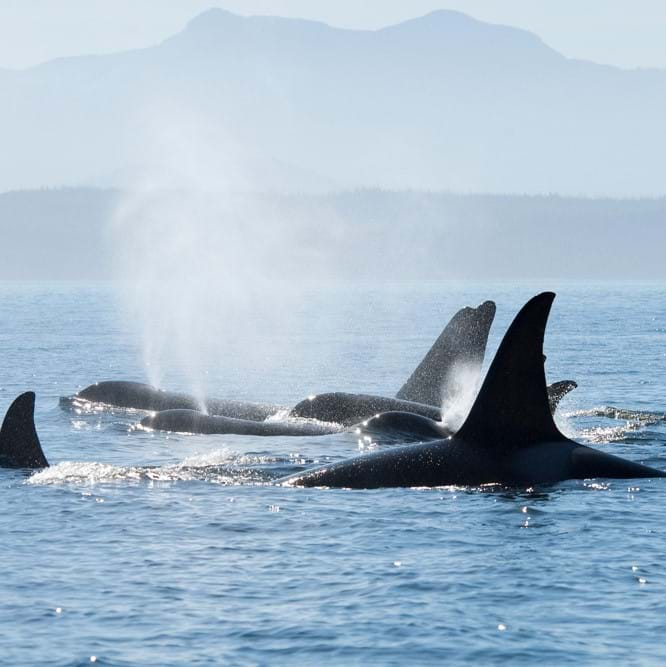
Haro Strait Vessel Slowdown Trial Interim Results
The ECHO Program just released its interim results for the vessel slowdown trial that took place in the Haro Strait from August 7 to October 6, 2017.
Results to date confirm that underwater noise from the commercial vessels participating in the trial is reduced when they slow down. Overall, vessels normally travelling faster, for example container ships travelling at 18-20 knots, showed the largest reductions in underwater noise emissions because they reduced the most in speed.
However, when looking at noise reduction on a per knot basis, vessels that would normally be travelling slower, for example bulk carriers or tankers travelling 13-15 knots, showed a greater per knot noise reduction.
The study also examined how slowing vessels down affected total sound in the underwater environment, or “ambient noise”. Total underwater noise was measured using a hydrophone located two kilometres away from the shipping lane in the trial slowdown area, in an important feeding area for southern resident killer whales (SKRW). Data showed a measurable reduction in ambient noise during the trial period.
Since SRKW use echolocation to find and capture their prey, vessel noise can interfere with their ability to hunt, as well as their ability to communicate with each other. The exact benefits of the vessel slowdown trial’s noise reductions to the SRKW are challenging to measure in the field so ECHO Program consultants are currently estimating the potential benefits using computer models.
The final vessel slowdown trial report will be available in spring 2018. Read the interim report summary here.
These findings will be presented during a panel on underwater noise at GreenTech 2018.
Photo: Ocean Network Canada